France
France's leadership will use a press from the time of Napoleon to seal the right to abortion into the country's constitution in a historic ceremony Friday that's open to the public and is designed to show support to women across the world on International Women's Day.
France is the first country to explicitly guarantee abortion rights in the national charter.
While abortion is a deeply divisive issue in the United States, it's legal in nearly all of Europe and overwhelmingly supported in France, where it's seen more as a question of public health rather than politics. French legislators approved the constitutional amendment on Monday in a 780-72 vote that was backed by many far-right lawmakers.
Friday's ceremony, held on the cobblestones of Vendome Plaza in Paris, is a key event on a day focused on advancing women's rights globally. Marches, protests and conferences are being held from Jakarta, Indonesia, to Mexico City and beyond.
The French constitutional amendment has been hailed by women's rights advocates around the world, including places where women struggle to access birth control or maternal health care. French President Emmanuel Macron called it a direct result of the U.S. Supreme Court ruling in 2022 rescinding long-held abortion rights.
Macron's critics questioned why he pursued the measure in a country with no obvious threat to abortion rights but where women face a multitude of other problems.
While some French women saw the step as a major win, others said that in reality, not every French woman has access to abortion.
"It's a smokescreen," Arya Meroni, 32, said of the event.
"The government is destroying our health care system, many family planning clinics have closed,'' she said at an annual "Feminist Night March" in Paris on the eve of International Women's Day.
France has a persistently high rate of women killed by their partners and challenges remain in prosecuting sexual abuse against women by powerful celebrities and other men. French women also see lower pay and pensions — especially women who are not white.
Macron's government said the abortion amendment was important to avoid a U.S.-like scenario for women in France, as hard-right groups are gaining ground and seeking to turn back the clock on freedoms around Europe.
Macron will preside over the constitutional ceremony. Justice Minister Eric Dupond-Moretti will use a 100-kilogram (220-pound) press from 1810 to imprint the amendment in France's 1958 constitution.
It will include the phrase, "the freedom of women to have recourse to an abortion, which is guaranteed." The ceremony will be held outdoors with the public invited, in another first.
France follows in the footsteps of the former Yugoslavia, whose 1974 constitution included the phrase: "A person is free to decide on having children." Yugoslavia's successor states retained similar language in their constitutions, though they did not spell out guaranteed abortion rights.
In other events Friday:
In Ireland, voters will decide whether to change the constitution to remove passages referring to women's domestic duties and broaden the definition of the family.
In Russia, where the United Nations says human rights have deteriorated since the military's full-scale invasion of Ukraine, President Vladimir Putin saluted Russian women fighting in the war and those waiting at home for their loved ones who had been deployed.
Protesters in Istanbul plan to call attention to violence against women and rallies are expected in many cities. Protests in Turkey are often political and, at times, violent, rooted in women's efforts to improve their rights as workers. This year's global theme is "Inspire Inclusion."
Indonesian demonstrators demanded the adoption of the International Labor Organization's conventions concerning gender equality and eliminating workplace violence and harassment. Labour rights groups in Thailand marched to the Government House to petition for better work conditions, and activists marching against violence in the Philippine capital were stopped by police near the presidential palace, sparking a brief scuffle.
India's government cut the price of cooking gas cylinders by 100 rupees ($1.20) with Prime Minister Narendra Modi posting on social media that the move was "in line with our commitment to empowering women."
The United Nations Children's agency said in a report released on International Women's Day that more than 230 million women and girls around the world have undergone female genital mutilation. The number has increased by 30 million in the past eight years, it said.
"We're also seeing a worrying trend that more girls are subjected to the practice at younger ages, many before their fifth birthday. That further reduces the window to intervene," said UNICEF Executive Director Catherine Russell.
Officially recognized by the United Nations in 1977, International Women's Day is a national holiday in about 20 countries, including Russia, Ukraine and Afghanistan.



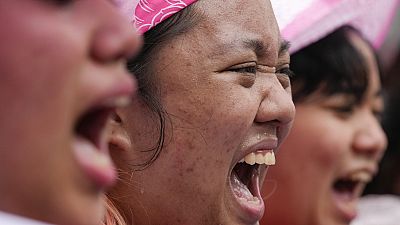

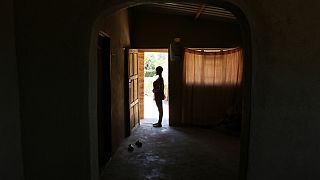
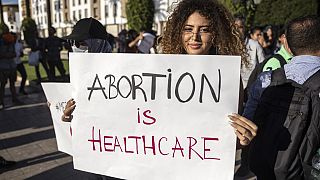
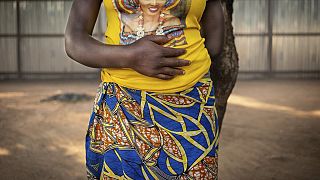
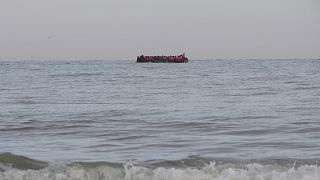
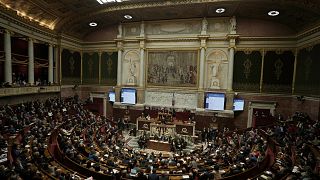




Go to video
Ruto's $9M mega church sparks outrage amid Kenya's crisis
Go to video
“I can’t do nuttin’ for ya man”, Nigerian Minister quotes Flavour Flav in rejection of Trump policy
Go to video
U.S. slashes visa duration for some African nationals amid policy shift
Go to video
Nigeria snubbed at White House summit, opposition blames Tinubu
Go to video
Ghana cracks down on gold smuggling with new multi-agency task force
Go to video
African migrants targeted as visa scams surge amid tougher immigration rules in Canada